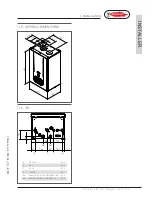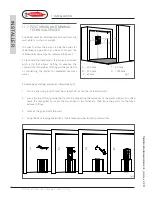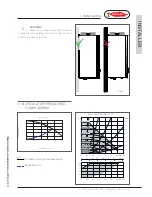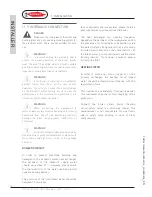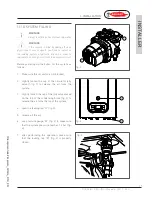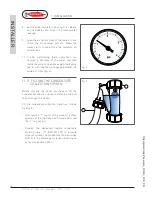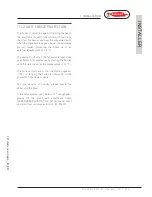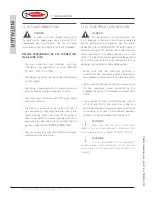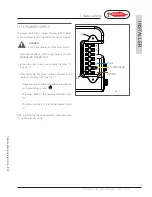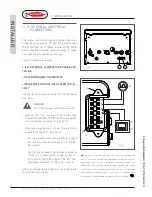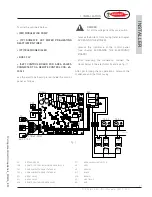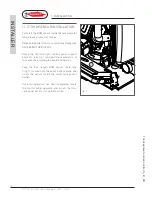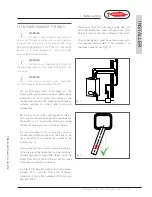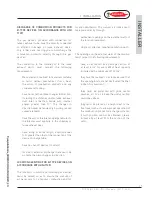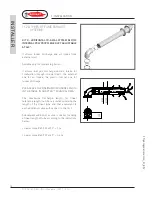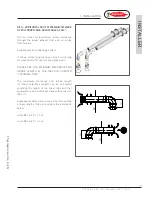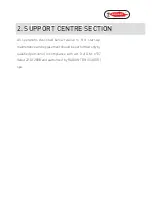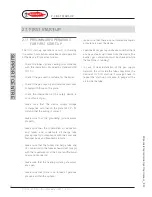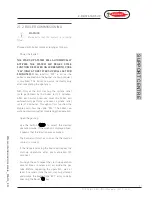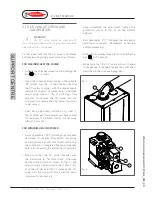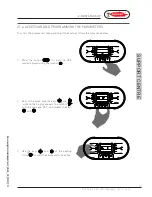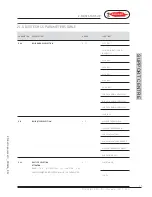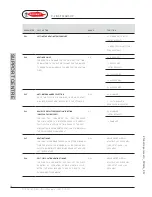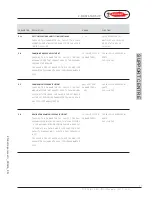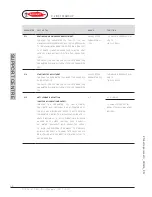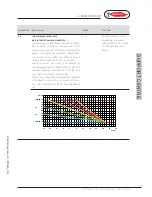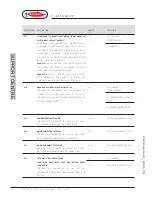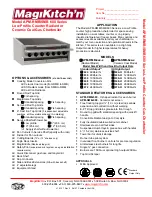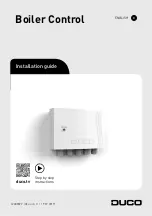
25
R1K 24 /B - RAD - ING - Manuale - 1507.1 - R2 G
1 Ti
po
log
ie di in
stall
azione
_B2
3P
, B33
, C1
3, C3
3, C43
, C53
, C63
, C83
e C9
3_
EN
1. INSTALLATION
INST
ALLER
DISCHARGE OF COMBUSTION PRODUCTS FOR
B-TYPE DEVICES (IN ACCORDANCE WITH UNI
7129)
The gas devices, provided with connection for
fumes exhaust tube, must be directly connected
to efficient chimneys or fume exhaust ducts:
only if these are missing you can discharge the
combustion products directly through the gas
devices.
The connection to the chimney or to the fume
exhaust ducts must respect the following
requirements:
· Be sealed and realised in materials suitable
to resist normal mechanical stress, heat,
the action of combustion products and any
condensate forming;
· have no more than three changes in direction,
including the chimney and/or fume exhaust
duct inlet connection, made with internal
angles greater than 90°. The changes in
direction must be made only by using curved
curved elements;
· have the axis of the inlet end perpendicular to
the internal wall opposite to the chimney or
fume exhaust duct;
· have, along its entire length, a section equal
to or greater then that of the connection of the
device discharge tube;
· have no shut-off devices (shutters).
· for direct external discharge there must be
no more than two changes in direction.
LOCATIONS VENTING FOR B-TYPE DEVICES (IN
ACCORDANCE WITH UNI 7129)
The locations in which are installed gas devices
must be vented so as to ensure the amount of
air necessary for a regular combustion and for
location ventilation. The natural air intake must
take place directly through:
· permanent openings on the external walls of
the location (windows);
· single or collective, ramified ventilation ducts.
The openings on the external walls of the location
must respect the following requirements:
· have a net overall free passage section of
at least 6 cm
2
for every kW of heat capacity
installed with a minimum of 100 cm
2
;
· they must be realized so as to make sure that
the opening inlets are not obstructed (neither
indoors nor outdoors);
· they must be protected with grids, metal
meshes, etc. so as to keep the useful section
mentioned above.
· they must be placed at a height next to the
floor level such as to allow proper operation of
the combustion products discharge systems;
if such position can not be obtained, please
increase by at least 50% the section of the
vents.

